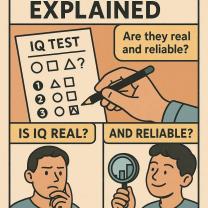What is a paraprofessional educator?
A paraprofessional educator, often referred to as a paraprofessional or instructional assistant, is an educational professional who works in a supporting role within a school or educational setting. Paraprofessionals play a crucial role in assisting teachers and helping students succeed. Their specific roles and responsibilities can vary depending on the school district, grade level, and the needs of the students they serve. Here's a demystification of the roles and responsibilities of paraprofessional educators:
1. Classroom Support: Paraprofessionals work closely with classroom teachers to provide support in various instructional activities. They assist with lesson planning, classroom management, and the implementation of educational programs.
2. Small Group Instruction: Paraprofessionals often work with small groups of students who may need additional help or individualized attention. They provide instruction, reinforce concepts, and answer questions to ensure that students grasp the material.
3. Individualized Education: In special education settings, paraprofessionals are often assigned to work with students who have disabilities. They help implement Individualized Education Programs (IEPs) by providing tailored support and accommodations to meet the specific needs of these students.
4. Behavior Management: Paraprofessionals can assist with behavior management strategies in the classroom. They help maintain a positive and conducive learning environment by addressing behavior issues, providing reinforcement for positive behavior, and de-escalating situations when necessary.
5. Resource Preparation: Paraprofessionals may help create and organize instructional materials, including worksheets, visual aids, and educational resources. They ensure that materials are ready for use in the classroom.
6. Testing and Assessment: Paraprofessionals can assist in administering assessments and tests. They may help with test preparation, reading questions aloud to students with reading difficulties, and ensuring testing accommodations are provided as needed.
7. Language and Communication Support: Paraprofessionals with language proficiency skills can assist English language learners (ELLs) in improving their language skills. They may help ELL students understand classroom instructions, adapt assignments, and provide language support.
8. Technology Assistance: In today's technology-driven classrooms, paraprofessionals can help students use digital tools and assist with troubleshooting technical issues. They may also support teachers in integrating technology into the curriculum.
9. Inclusive Education: Paraprofessionals promote inclusivity by ensuring that students with disabilities or special needs are fully integrated into regular classroom activities and receive the support necessary to succeed alongside their peers.
10. Safety and Well-Being: Paraprofessionals are responsible for ensuring the safety and well-being of students. They may accompany students on field trips, monitor hallways, and assist with emergency procedures.
11. Data Collection: In some cases, paraprofessionals collect data related to student progress, behavior, or attendance. This information can be used by teachers and administrators to make informed decisions about instruction and interventions.
12. Collaboration: Effective collaboration with classroom teachers, special education teams, and other professionals is a key aspect of a paraprofessional's role. They participate in meetings, share insights, and work together to meet the educational goals of students.
It's important to note that paraprofessionals have diverse backgrounds and skills, and their roles may vary based on local regulations and individual school district policies. Their work is instrumental in supporting the educational experience and success of students, especially those with unique learning needs.
Paraprofessional Educators: Roles, Responsibilities, and Impact
Paraprofessional educators, also known as teacher aides or instructional assistants, play a vital role in supporting student learning. They work under the supervision of licensed teachers to provide a variety of services, including:
- Providing individualized instruction to students
- Assisting with classroom management
- Helping with administrative tasks
- Working with students with special needs
- Providing support for English language learners
Paraprofessional educators can make a significant impact on student learning by providing students with the extra support they need to succeed. For example, they can work with students one-on-one to help them master difficult concepts, or they can lead small groups of students in enrichment activities. Paraprofessional educators can also help to create a positive and supportive learning environment for all students.
Educational Support: How Paraprofessionals Enhance Student Learning
Paraprofessional educators enhance student learning in a variety of ways. Here are a few examples:
- Providing individualized instruction: Paraprofessional educators can work with students one-on-one to provide individualized instruction. This is especially beneficial for students who need extra help in a particular subject area or who have special needs.
- Assisting with classroom management: Paraprofessional educators can assist teachers with classroom management tasks, such as monitoring student behavior, distributing materials, and collecting assignments. This can help teachers to focus on teaching and to create a more orderly and productive learning environment.
- Helping with administrative tasks: Paraprofessional educators can help teachers with administrative tasks, such as grading papers, preparing lesson plans, and maintaining classroom records. This can free up teachers' time so that they can focus on teaching and on providing support to their students.
- Working with students with special needs: Paraprofessional educators can work with students with special needs to provide them with the support they need to succeed in the classroom. This may involve helping students with their assignments, providing them with behavioral support, or assisting them with their physical needs.
- Providing support for English language learners: Paraprofessional educators can provide support for English language learners by helping them to develop their English skills. This may involve working with students one-on-one, leading small groups of students in language activities, or providing students with translated materials.
Assisting in Education: The Essential Role of Paraprofessional Educators
Paraprofessional educators play an essential role in education by providing support to teachers and students. They help to create a positive and supportive learning environment for all students, and they provide individualized instruction and support to students who need it most.
Paraprofessional educators are a valuable asset to any school district. They are highly skilled and dedicated professionals who are committed to helping students succeed.
Here are some specific examples of the impact that paraprofessional educators can have on student learning:
- A paraprofessional educator can help a student with a learning disability to master a difficult concept.
- A paraprofessional educator can help an English language learner to develop their English skills.
- A paraprofessional educator can help a student with a behavioral problem to learn how to manage their behavior.
- A paraprofessional educator can help a student who is struggling in a particular subject area to get the extra help they need to succeed.
- A paraprofessional educator can help to create a more inclusive and welcoming classroom environment for all students.
Paraprofessional educators make a significant difference in the lives of their students. They are essential members of the education team, and they play a vital role in helping students succeed.












